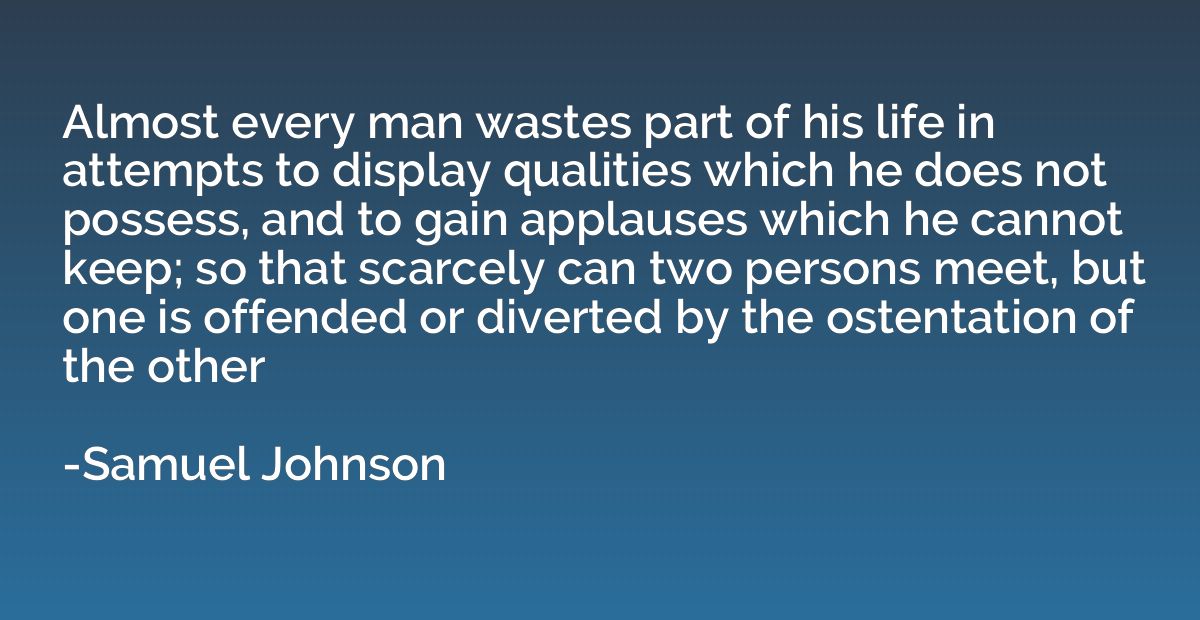Quote by Samuel Johnson
Almost every man wastes part of his life in attempts to display qualities which he does not possess, and to gain applauses which he cannot keep; so that scarcely can two persons meet, but one is offended or diverted by the ostentation of the other

Summary
This quote suggests that many individuals spend a significant portion of their lives trying to showcase qualities they don't actually possess in order to seek praise from others. However, these demonstrations are often superficial and temporary, leading to disillusionment and dissatisfaction in their interpersonal interactions. As a result, it is likely that when two people come together, one person feels either offended or distracted by the exaggerated display of the other person's accomplishments or attributes. The quote highlights the tendency for individuals to engage in pretentious behavior, which often leads to strained social dynamics.














